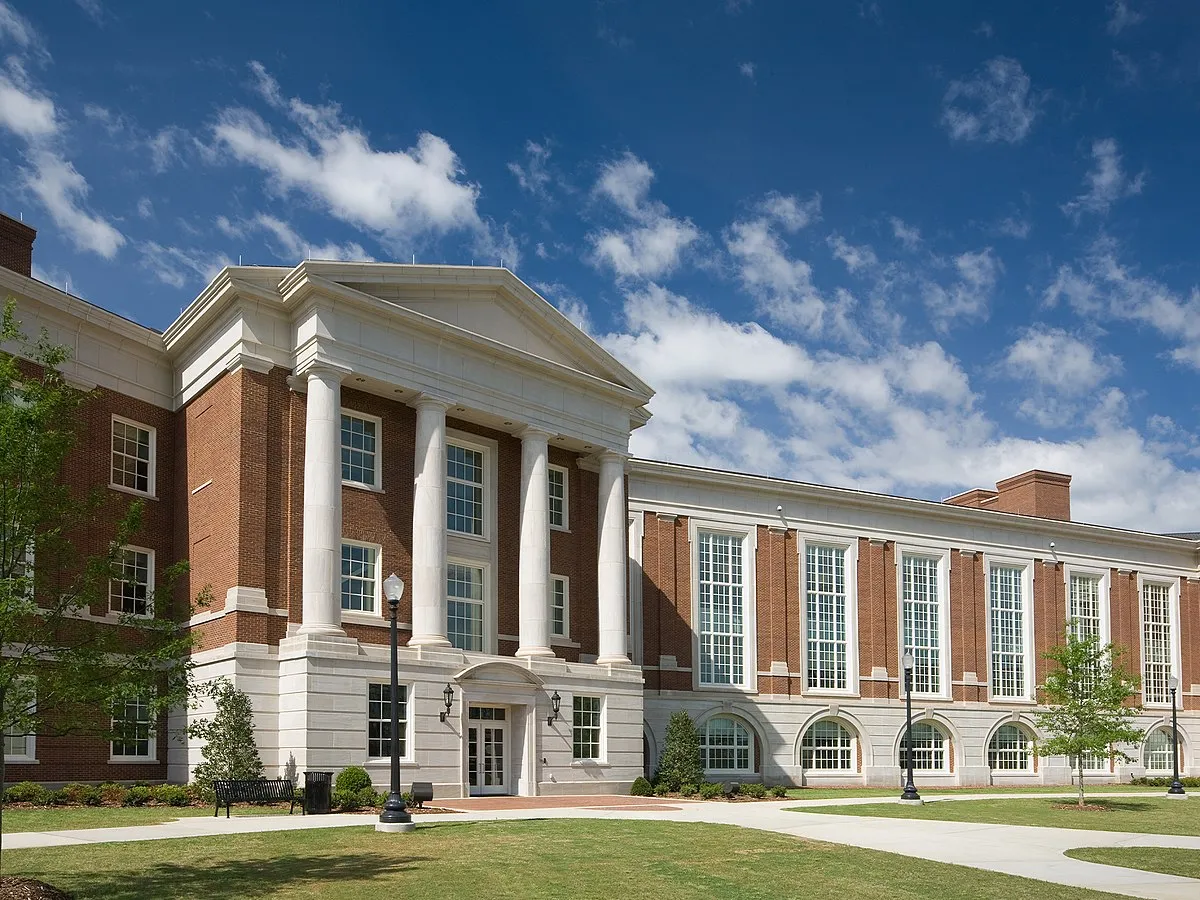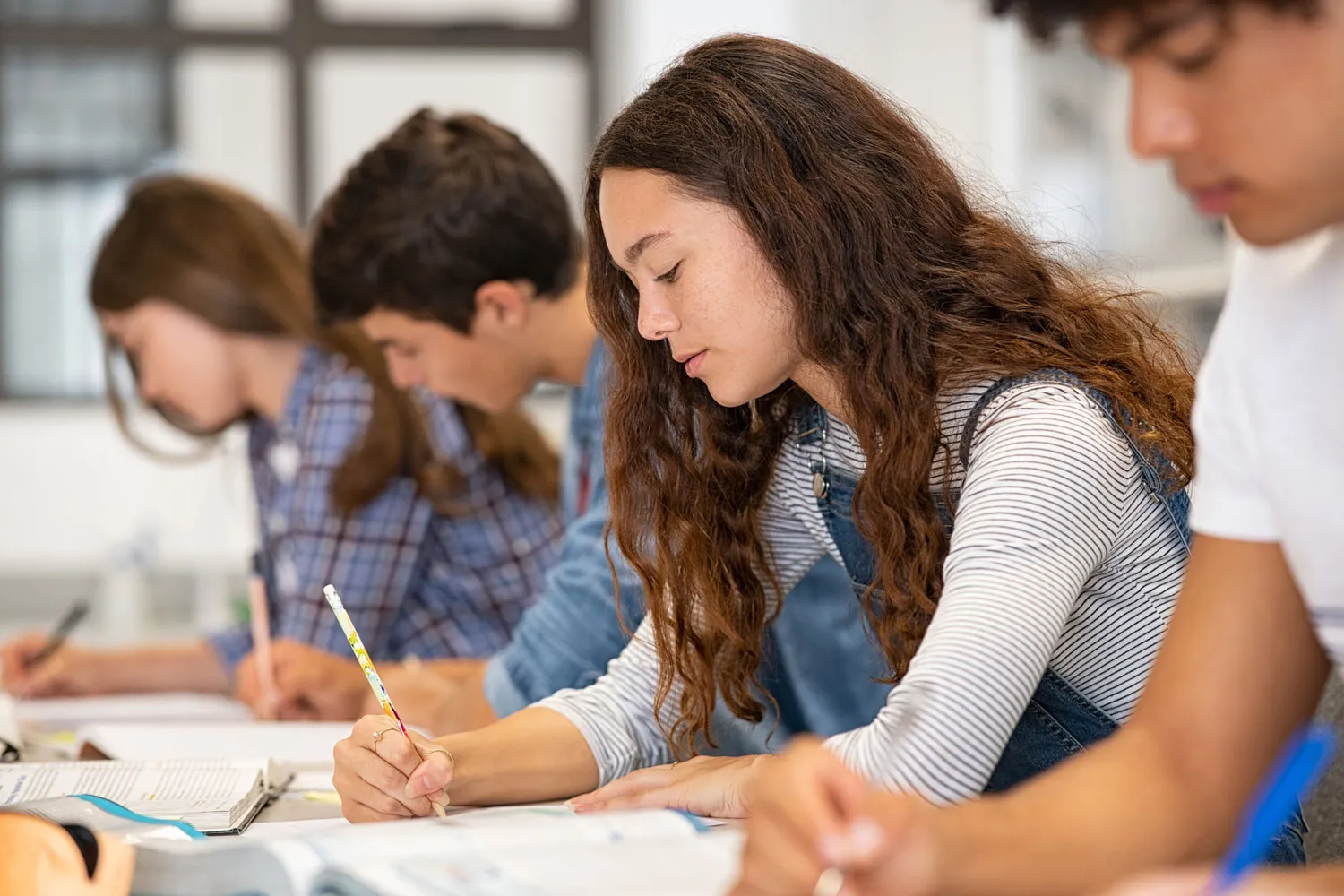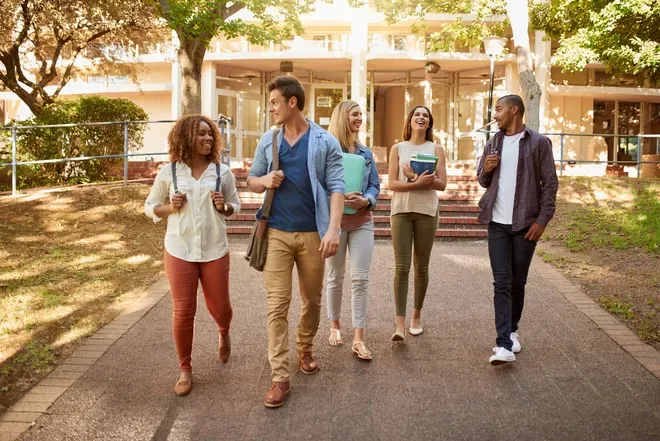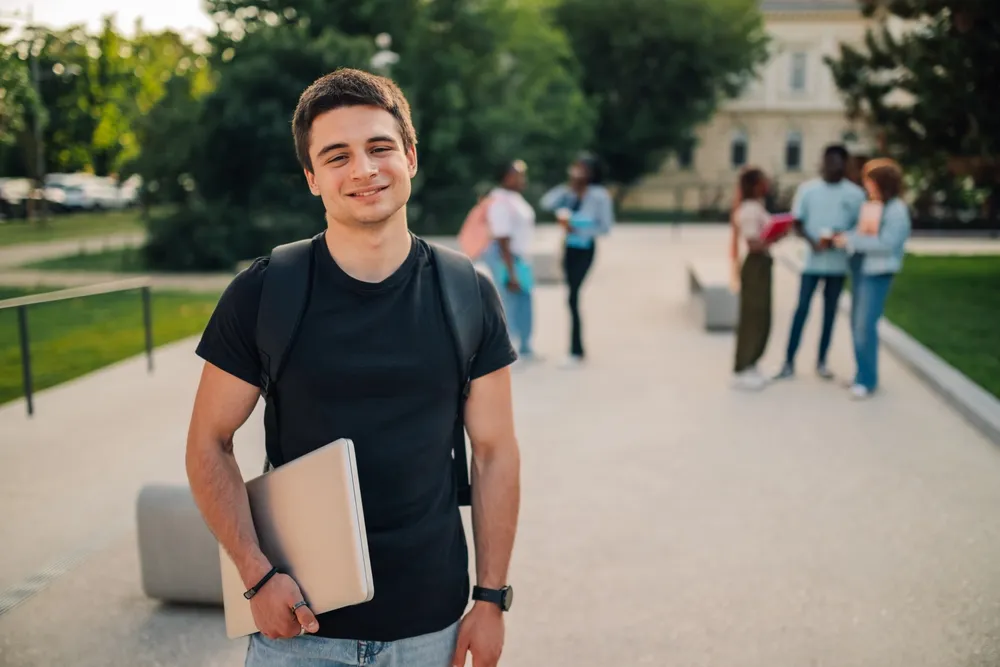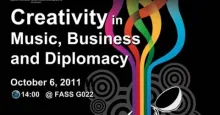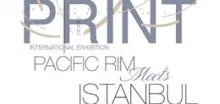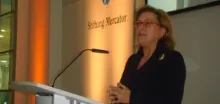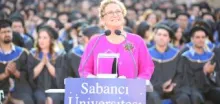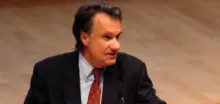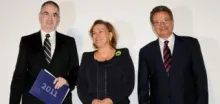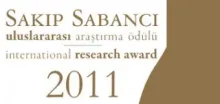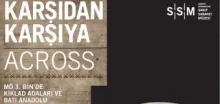04/10/2011
19/08/2011

‘PRINT - Pacific Rim Meets Istanbul’
The International ‘PRINT - Pacific Rim Meets Istanbul’ exhibition provides a rare and incredible opportunity, to view contemporary print artworks from many nations geographically united by their proximity to the Pacific Rim, in a collaborative merger with print artworks from Istanbul. The idea for creating an exhibition from these two vastly different regions, cultures and creative sensibilities, was developed when the co-curators, faculty member Alex Wong from Sabancı University, Istanbul and Associate Professor Cathryn Shine from the University of Canterbury, discussed how ‘globalisation’ in the art world was now a unifying dimension of contemporary life. This wonderful exhibition will greatly enhance the visual, emotional and intellectual experiences for any audience.
Coinciding with the Istanbul Biennale 2011, International PRINT - Pacific Rim Meets Istanbul’ presents an astounding display of contemporary printmaking. Artists in this exhibition have worked with diverse concepts, and in an extraordinary range of processes from the traditional mono printmaking to ultra-modern digitally generated images. The expert skills of the artists can be seen in the technical, originality of these works on paper.
At present, artists from all nations and cultures are constantly reacting to, and reflecting on issues of contemporary life in their work. Now days many artists are no longer intimately connected to one small community, and are not restricted to making artworks for a narrow audience. In this exhibition there are many common conceptual themes, such as global environmental issues, sustainability, history, reverence for nature, personal journeys, politics and entertainment that reflect on our shared humanity.
Electronic and digital art forms have contributed to and changed our judgements, processes and perceptions, of art making. Our awareness of the world’s contemporary life is now so much more universal, as access to the Internet with its speedy communications between peoples from widely different cultures and locations, enhances our understanding of each other.
Printmaking is a medium immensely suited to utilise the post-modern approach of appropriating and ‘constructing’ images. Works on paper can be distributed worldwide with ease, and the repeatable printed image reflects aspects of modern, mass communication and new technology.
‘PRINT - Pacific Rim Meets Istanbul’ featured in ISEA Istanbul 2011, showcases an extremely talented group of artists who push any confined definitions of printmaking, by expanding our knowledge of new technologies in print artworks. Equally, these artists challenge us intellectually in provocative ways, encouraging us to explore visual ideas, experimental effects and individual conceptual vocabularies, to take us in unexpected new directions.
Cathryn Shine and Yoong Wah Alex Wong
International PRINT Exhibition - Pacific Rim Meets Istanbul 2011
Curators in chief
Participating Artists:
Ann Johnston-Schuster, Washington, USA
Anne Starling, New South Wales, Australia
Anthony Davies, Wanganui, New Zealand
Ben Rak, New South Wales, Australia
Briar Craig, British Columbia, Canada
Byron Brauchli, Veracruz, Mexico
Cathryn Shine, Christchurch, New Zealand
Chunwoo Nam, New York, USA
Daisuke Inada, Tokyo, Japan
Deborah Cornell, Massachusetts, USA
Didem Çarıkçı Wong, Istanbul, Turkey
Fatoş Adiloğlu, Istanbul, Turkey
Hernado Vergara Amaya, Bogata, Columbia
Jenny Freestone, Maryland, USA
John Travaglia, Hamilton, New Zealand
Jonathan Cartledge, Massachusetts, USA
Kim Lowe, Christchurch, New Zealand
Kim Seung Yeon, Seoul, South Korea
Kyle Turner, Illinois, USA
Lynn Criswell, California, USA
Manuel Lau, Quebec, Canada
Marian Crawford, Victoria, Australia
Mark Graver, Kerikeri, New Zealand
Michael Bishop, California, USA
Michelle Martin, Oklahoma, USA
Mitch Mitchell, Alberta, Canada
Mitsuru Nagashima, Chiba-Ken, Japan
Olav Nielsen, Dunedin, New Zealand
Paul Smith, New South Wales, Australia
Richard Bigus, Hawaii, USA
Rıza Kuruüzümcü, Istanbul, Turkey
Shirley Benstein, Connecticut, USA
Stephen Lovett, Auckland, New Zealand
Valdlmir Zuev, Nizhny Tagil, Russia
Wendy Kahle, Oregon, USA
Wieslaw Zaremba, Gdansk, Poland
Yoong Wah Alex Wong, Istanbul, Turkey
Yuji Hiratsuka, Oregon, USA
11/07/2011
• ANOTHER STEP FOR SABANCI UNIVERSITY TO BECOME A WORLD-RENOWNED UNIVERSITY
• SABANCI UNIVERSITY ISTANBUL POLICY CENTRE AND GERMANY’S MERCATOR STIFTUNG HAVE SIGNED A STRATEGIC PARTNERSHIP DECLARATION
• CHAIRMAN OF SABANCI UNIVERSITY, GULER SABANCI WAS THE KEYNOTE SPEAKER AT MERCATOR STIFTUNG’S ANNUAL CONFERENCE
• GULER SABANCI: “FOLLOWING OUR PARTNERSHIP WITH MIT, THIS NEW LONG-TERM PARTNERSHIP WITH MERCATOR STIFTUNG WILL ELEVATE SABANCI UNIVERSITY TO THE GLOBAL ARENA”
• “TURKEY TODAY IS NOW A CRUCIAL PARTNER FOR THE EUROPEAN UNION”
Further to its vision to become a “world university,” Sabanci University has embarked upon a strategic partnership with Mercator Stiftung following the long-term co-operation agreement signed with the world-reputable MIT Sloan School of Management in January.
The strategic partnership framework agreement between Sabanci University’s Istanbul Policy Centre and the Mercator Stiftung was signed by the chairman of Sabanci University, Ms Guler Sabanci, and the Chairman of Mercator Stiftung, Mr. Bernhard Lorentz, during a ceremony attended by luminaries from the German world of business, politics and civil society, at Mercator Stiftung’s annual conference in Essen.
The five-year strategic partnership between the Istanbul Policy Centre and the Mercator Stiftung will focus on research and public policy generation on climate change, EU-Turkey relations and education. The wide and varied research that will be devoted to climate change will in particular be a first for Turkey. The Istanbul Policy Centre-Sabanci University-Mercator Foundation initiative is aimed to be a research centre and think tank based on a vision of Turkish-German equality and to develop joint policy with regard to Turkish-EU relations.
Following the ceremony, Guler Sabanci delivered a keynote address at the Mercator Stiftung’s annual conference.
During the speech, called “Common Approaches to Global Challenges” Sabanci noted the following: “The close cooperation and friendship between Germany and Turkey go back over a century. Germany is Turkey’s most important trading partner and the biggest foreign investor in Turkey with investments totalling approximately 8.5 billion dollars since 1980. In 2010, bilateral trade reached a new record of approximately 26 billion Euros.”
-A COMMON APPROACH TO GLOBAL CHALLENGES-
Sabanci continued: “Turkey and Germany are both members of the G-20, a body which should be even more instrumental in resolving global issues. In 2009, Germany and Turkey jointly celebrated 50 years of successful bilateral development cooperation. Today, over 3900 German companies are doing business in Turkey – more than from any other country.
In terms of demographics, around 2.7 million people living in Germany are of Turkish origin and more than 700,000 of them have German nationality – constituting the largest Turkish community outside of Turkey. Nearly 100,000 Turkish entrepreneurs in Germany employ approximately 400,000 people in the country. Their total investments are worth around 10 billion euros. Each year four million Germans spend their holidays in Turkey.
Through these strong links, Turkey and Germany are at a better position than their peers to develop a common response to today’s global challenges, which can be summarized in three broad categories: climate change, a turbulent global economy, and political instability in this region, which also happens to be the EU’s hinterland. The current global energy picture looks unsustainable. The challenges to increase our energy supply to meet the worlds skyrocketing demand can be summed up in one simple fact: That we are headed for a serious increase in temperatures, which in effect will alter our living conditions. Our planet is struggling to absorb the environmental side effects of rapid economic growth. Yet, our chance to alter the course of climate change is withering, as governments, with the exception of Germany’s, are putting less and less financial and intellectual capital into developing sustainable energy policies.”
-“NOW AT LAST LET ME SEE SOME DEEDS”-
Both Turkey and Germany take the issue of climate change very seriously. But, in the words of Goethe, “Enough words have been exchanged; now at last let me see some deeds!”
The cooperation between the Sabanci University Istanbul Policy Center and the Mercator Foundation is one of the first steps in which the two countries can coordinate the actions needed to stop climate change. Turkey is a nation of vital importance to Europe’s energy security. Not only because Turkey is an “island of stability” within its own region but because it can influence that region and is a factor in reducing the tension that could lead to explosions and clashes at any moment.
Specifically, the European Union is facing the following threats: A high and growing dependency on imports of gas and oil; its efforts to create a fully integrated energy market; political unrest and economic stagnation in supplier countries; and the necessity to switch to clean technology.
In order to secure its energy supplies, the EU needs to diversify its suppliers and its transit routes and has to develop a closer dialogue with producers and transit regions. In this, what is the role of Turkey as a potential major hub?
-“SUPPORTING EU’S SECURITY”-
Turkey is neighbours with 70% of the world’s proven gas and oil reserves and thus forms a natural bridge between producers in Central Asia, the Caspian basin, the Middle East, Africa – and Europe. Using the benefits of its strategic position, Turkey can substantially contribute to the energy security of the EU. It is not only a transit country for supplies from the Middle East and Central Asia but also an alternative route for Russian resources. The EU was able to tap into the lucrative South American markets following the accession of Spain and Portugal.
Similarly, Turkey’s admission into the EU would allow it do the same to the Middle East, Central Asia, the Caspian region and the Caucasus thanks to Turkey’s strong links with and influence in those regions. Turkey is a secure and stable country, a democracy with a secular system, and a longstanding member of NATO. Compared with other countries in the region these are significant assets. Turkey could help the EU to bring stability not only to the Middle East but also the Caspian and Caucasus regions. By delivering resources from those regions to Western markets, Turkey can help to raise their prosperity, thus improving political and economic stability.
In our neighbors to the south, we have witnessed an unprecedented wave of uprisings driven by the people who have long been the victims of inequality and authoritarian regimes.
-“GERMANY AND TURKEY ARE TWO ISLANDS OF STABILITY”-
The journey is not over. The Arab Spring has not ended. It has only just begun, and the democratization and liberalization process will take decades. Turkey can act as a crucial source of support during these troubled times.
I called Turkey an island of stability in its region earlier. And Germany has proven itself to be an island of stability in Europe during the financial crisis. Its economy is robust, industry growing, prospects strong. Germany and Turkey are the two islands of stability in their region. And cooperation between the two countries can only be mutually beneficial.
We know that the multiple challenges in the eastern and southern Mediterranean are global ones that require regional and global solutions. A common approach by Turkey and Germany is of huge importance in this context.
Turkey has emerged as one of the more dynamic emerging economies over the last decade. Turkey's first quarter growth rate in this year was an amazing 11 percent. Last year's growth was almost 9 percent. The resilience and dynamism of Turkey signals the potential for a new partnership between Germany and Turkey, a partnership that can be more equal and more balanced than in the past. Today both countries are perceived as "successful countries", with economies that seem to perform and that can provide examples for others.
While we should be proud of our performance, I think history teaches us that with success comes the danger of overconfidence. Looking at Turkey in the summer of 2011, it is when times are relatively good that difficult reforms should be undertaken, that fiscal policy should be tightened, that the current account deficit should be reduced and that the basis should be built for truly sustainable growth.
Looking at Germany, the strength of the German economy and the wonderful performance of German industry in world markets, should allow Germany to take a leadership role in building the Europe of 2020, based on both greater responsibility of each country in terms of fulfilling obligations to the Eurozone, but also greater coordination of policies and solidarity across countries that share a common currency and a common destiny.
Systemic risk has become much more complex in the world economy as interdependence has increased in various ways. Take the example of our neighbor, Greece. Greek GDP is about one half of a percent of world GDP. It is a very small economy in terms of world GDP or world trade, or indeed world financial assets. And yet if the situation in Greece is not soon resolved, it could become a real threat not only to the European Union but to the world economy.
Various financial derivatives tie Greek debt to the world financial system. Moreover, what happens in Greece can set precedents. Even countries with much lower debt to GDP ratios can become vulnerable. That is why there is fear of contagion.
We have all become much more interdependent than two or three decades ago. While neither Germany nor Turkey is directly threatened both countries have a strong interest in Greece's recovery, because the European and world economy as a whole could be threatened, and that would of course affect us all.
Today’s Turkey is a crucial partner for Europe. While continuing to insist on its European future, Turkey is already in a position to be Europe’s partner to resolve issues in the Mediterranean and the global energy arena, while strengthening the foundations of its democracy.
Turkey thrives as the only stable country in its own region. With its secular democracy, rapidly growing economy, and a civil society that is growing stronger, it can continue to set a good example for its neighborhood.
The European Union was founded on the principles of diversity, peace, and cooperation. When we talk about issues concerning Turkey, or specifically its candidacy, we are talking about Europe’s founding principles of cultural diversity, extending the zone of peace, and living together in harmony.
The European Union cannot afford to be a museum. It must be an active player in the domain of international politics. In brief, Turkey and the EU need each other. And the EU is Turkey’s destiny. Turkey’s accession to the EU is an evolution: both for Turkey and the EU. Governments come and go. Relationships remain. And they can get better. Even though the journey is more important than the destination, I never lose my hope that Turkey will eventually become a full-fledged member of the EU.
One final point that I will make before concluding my remarks is on the burgeoning relations between the civil societies of Europe and Turkey. The number of European civil society organizations with Turkish branches doubled in the last decade. I am happy to see that with the representation in Turkey of prestigious German think tanks such as the Friedrich Naumann Foundation, Konrad Adenauer Foundation, and Heinrich Böll Foundation, Germany is the leader in this initiative.
In light of these positive developments, we are here today to launch another important partnership with our German friends. The Mercator Foundation and Sabancı University have decided to launch a strategic and long-term cooperation to be implemented by the Istanbul Policy Center of Sabancı University.
The Istanbul Policy Center-Sabancı University- Stiftung Mercator Initiative will explore and develop German and Turkish perspectives both on Europe and its future and on global issues. The partnership will focus on the following three core areas: climate change, the common German-Turkish approach to the future of Europe and EU-Turkey relations, and education. How do Germans and Turks perceive and approach this global challenge? How is it likely to affect economic and energy policies? How will Germany and Turkey approach the issue at the G20 meetings? What can Turks and Germans do together on this issue? How do Germany and Turkey perceive the position of other major actors, such as China and the United States when it comes to climate change?
Over the next five years, we will seek the answers for these and other questions. We are hoping that Turkey and Germany will start to see each other in a new light. We are here to change mindsets. I know that we will follow the work of this new enterprise with great hope, confidence and ambition”.
29/06/2011
735 graduate from Sabancı University
The commencement ceremony for the 12th undergraduate and 9th graduate classes of Sabancı University took place on Saturday, June 25th at the Sabancı University campus. 11 doctorate, 129 master’s and 595 bachelor’s students received their diplomas. Among this year’s graduates were international students from 12 countries, namely the United States, Germany, Albania, Austria, Azerbaijan, Bosnia-Herzegovina, Palestine, India, Iran, Egypt, Russia and Ukraine.
Video: The commencement ceremony
Speaking at the ceremony, Sabancı University Board of Trustees Chair Güler Sabancı told the graduates, “You will be creating the new and contemporary Turkey.” Güler Sabancı spoke about the recent elections, saying, “The first and foremost task to be undertaken by the new parliament will be to prepare Turkey’s first civilian constitution.” Sabancı argued that the voters had done their duty, and that it was now the elected who should act.
The closing lecture was delivered by Presidential Grand Prize in Culture and Arts 2010 laureate and Harvard University faculty member, Ottoman history expert Professor Cemal Kafadar, titled “Our Region, Our Neighbors and Us.”
The 12th undergraduate and 9th graduate classes of Sabancı University graduated on Saturday, June 25th, 2011. The new graduates took their diplomas at the commencement ceremony held on campus with more than 5000 in attendance. Honors students received their prizes at the ceremony. The Faculty of Engineering and Natural Sciences Honors went to Ömercan Yüksel, the Faculty of Arts and Social Sciences Honors to Semih Üslü, and the School of Management Honors went to Buse Büket.
In addition to Sabancı University Board of Trustees Chair Güler Sabancı and President Professor Nihat Berker, speaking at the ceremony were Olena İzhak on behalf of graduate students and Veysel Süleyman Sönmez on behalf of undergraduate students. Sabancı University Alumni Association President Tunç Acarkan gave a speech to the new alumni.
Another event during the ceremony was the presentation of commemorative bricks to representatives from ALSTOM and GES Elektrik, the two corporations that support the university together with the Sabancı family and the Sabancı Foundation, helping to extend scholarship opportunities to 20 additional students in the next academic year.
“Sabancı University stays true to its path to achieve its goals for the next decade.”
Sabancı University Board of Trustees Chair Güler Sabancı began her speech by telling how seeing so many young and bright people together raised her hopes for the future, precisely at a time when the role the growing and developing Turkey will play in the region and the world in general was under debate. Saying that the almost five thousand Sabancı University alumni were beginning to take leadership positions in the business world, Güler Sabancı noted that for the first time, Sabancı University graduates took positions within the faculty this year.
Referring to her speech at the commencement last year, Güler Sabancı revisited the 10-year goals of Sabancı University, and said that the institution was on the right path to realize these goals under the leadership of President Nihat Berker.
Güler Sabancı said that the Sabancı University Nanotechnology Research and Application Center (SUNUM), which will be officially inaugurated in the coming weeks, would host groundbreaking research in nanotechnology and have an impact on all aspects of life.
Also mentioning the international cooperation efforts at Sabancı University, Güler Sabancı cited the MIT Sloan School of Management cooperation, joint programs with the Central European University, and the upcoming initiative with the German Mercator Foundation as examples. Güler Sabancı said that Sabancı University was among the top recipients of international research funds for projects.
Güler Sabancı explained that research on global issues was an ongoing effort at Sabancı University, and that they were aware of their responsibilities towards not only the near region, but to the world in general. In this respect, Sabancı said that they supported the new initiatives by the Istanbul Policy Center, and established the Istanbul International Climate and Energy Center.
“You will be creating the new and contemporary Turkey”
Addressing the young graduates, Güler Sabancı said, “At times, you may be faced with difficult choices. That is when you should remember your university and the universal values we attempted to impart you, including the power of knowledge, human rights, gender equality, free thought and respect for the individual. Remember what you have learned here, the values you gained, and the role models you knew.”
Güler Sabancı continued, “With the values you gained at Sabancı University, you will contribute to the society as its visionary citizens. Always remember the state of mind you are in now. Success means happiness, and the greatest happiness will come through contributing to your communities. The ideal individuals of our time are sensitive to human rights, responsible for the environment, and have sustainability at the center of their lives. Your courage will come through these values. You will be creating the new and contemporary Turkey.”
“The first and foremost task to be undertaken by the new parliament will be to prepare Turkey’s first civilian constitution”
Discussing the recent elections, Güler Sabancı said that a voting rate of 87% and a representation rate of 95% made for a very satisfactory parliament.
Güler Sabancı said, “The first and foremost task to be undertaken by the new parliament will be to prepare Turkey’s first civilian constitution. This new constitution must be focused on the individual and include the values I have just mentioned. Turkey needs a truly liberal and democratic constitution that is focused on the citizen and prioritizes individual rights and freedoms. This is the key to solving all of Turkey’s issues. Instead of debating over every individual issue and making solutions more difficult to implement, we must work towards a higher goal: to build a new, modern and civilian constitution. Everyone has responsibility. The voters did their duty, and it is now the elected who should act.”
Four graduates received Gürsel Sönmez Awards
Awards established in memory of the late Sabancı University faculty member Gürsel Sönmez, who passed away in 2006, were also given at the commencement ceremony. Winners of the Dr. Gürsel Sönmez Research Awards this year were Yalçın Yamaner from the Electronic Engineering Doctorate Program, Nilay Duruk Mutlubaş from the Mathematics Doctorate Program, İbrahim Muter from the Industrial Engineering Doctorate Program, and Halit Erdoğan from the Computer Science and Engineering Graduate Program.
The hat toss was followed by live music by Ayhan Sicimoğlu and dance shows. Sabancı University Board of Trustees Chair Güler Sabancı took to the dance floor and shared the merriment with the students.
Closing lecture by Cemal Kafadar on “Our Region, Our Neighbors and Us”
The closing lecture for graduates this year was delivered by Presidential Grand Prize in Culture and Arts 2010 laureate and Harvard University faculty member, Ottoman history expert Professor Cemal Kafadar, titled “Our Region, Our Neighbors and Us.” Kafadar discussed the interaction of humans with their natural and historical environment and surroundings.
23/06/2011
The commencement ceremony for the 12th undergraduate and 9th graduate classes of Sabancı University will take place on Saturday, June 25th, 2011 with the attendance of Board of Trustees Chair Güler Sabancı and President A. Nihat Berker.
Graduates will receive their diplomas at the commencement ceremony to be held at the Tuzla campus. Awards established in memory of the late Sabancı University faculty member Gürsel Sönmez, who passed away in 2006, will also be given at the ceremony.
Speaking at the ceremony will be Sabancı University Board of Trustees Chair Güler Sabancı and President Professor Nihat Berker, followed by Olena Izhak on behalf of graduate students and Veysel Süleyman on behalf of undergraduate students.
Sabancı University Alumni Association President Tunç Acarkan will give a speech to the new alumni. The hat toss will be followed by live music entertainment by Ayhan Sicimoğlu.
Program:
Date: Sunday, June 25th, 2011
Time: 7.00pm
Place: Sabancı University, Orhanlı, Tuzla
Please click here for the shuttle schedule.

Gallery
Photos from previous commencement ceremonies
23/06/2011

Commencement ceremonies have been important events to build the institutional memory of the university since 2000, when the first students graduated. The “Academic Year Closing Lecture” given to the commencement class one day before the ceremony has also become a tradition.
The person to deliver the academic year closing conference is chosen by a democratic and participatory process led by the commencement class. This year’s lecturer will be Presidential Grand Prize in Culture and Arts 2010 laureate and Harvard University faculty member, Ottoman history expert Professor Cemal Kafadar.
Kafadar’s lecture will be titled “Our Region, Our Neighbors and Us.”
All Sabancı University members are invited.
Photos from previous closing lectures
13/06/2011
NanoTR - Nanoscience and Nanotechnology Conference is the most comprehensive meeting organized annually in Turkey in the field of nanoscience and nanotechnology. The 7th Nanoscience and Nanotechnology Conference (NanoTR VII) will be held in Sabancı University on June 27 - July 1, 2011 in Istanbul.
The objective of the 7th Nanoscience and Nanotechnology Conference is to bring together scientists, researchers, students, and technical people from different disciplines such as basic sciences, engineering, pharmacy and medicine as well as representatives of industrial organizations to discuss the recent developments in the field of nanoscience and nanotechnology, and create synergy towards new openings and collaborations.
In order to reach these objectives and provide the sharing environment we organize plenary, oral and poster sessions during the day. Besides there will be a daylong Brokerage Event in cooperation with Enterprise Europe Network and TÜBİTAK. This event will be open to all Conference participants.
One of the newest theme of this year is Nanotechnology Governance and National Nanotechnology Policies.
Another new theme is Nano Entrepreneurship: A Journey from Research through Implementation. The session dedicated to this theme will highlight the success (or fail) stories of nano entrepreneurs in order to inspire the prospective entrepreneurs who are dreaming of nanotechnology-enabled products.
nanotr7@sabanciuniv.edu
On behalf of Organization Committee
Ahmet Oral

09/06/2011
The Sakıp Sabancı International Research Award Was Given to Professor Kemal Kirişci for His Article on a Multidimensional Look at Turkey’s Foreign Policy
Established by Sabancı University in honor of the late Sakıp Sabancı, the Honorary Board of Trustees Chairman of Sabancı University, the “Sakıp Sabancı International Research Awards” were given at a ceremony held on Monday, June 6. The ceremony was hosted by Sabancı University Board of Trustees Chair Güler Sabancı and President A. Nihat Berker. The late Sabancı was remembered in the seventh year of his departing.
The theme for this year’s awards was “New Directions for Turkish Foreign Policy in a Changing World: Issues and Opportunities” and the winner was Boğaziçi University Professor Kemal Kirişci with his paper titled “Turkey’s Engagement with Its Neighborhood: A “Synthetic” and Multidimensional Look at Turkey’s Foreign Policy Transformation.”
Established by Sabancı University, the 6th “Sakıp Sabancı International Research Awards” were given at a ceremony hosted by Sabancı University Board of Trustees Chair Güler Sabancı and President Professor Nihat Berker on Monday, June 6 at the Sabancı University Sakıp Sabancı Museum - the Seed. The theme for this year’s awards was “New Directions for Turkish Foreign Policy in a Changing World: Issues and Opportunities” and the winner was Boğaziçi University Professor Kemal Kirişci with his paper titled “Turkey’s Engagement with Its Neighborhood: A “Synthetic” and Multidimensional Look at Turkey’s Foreign Policy Transformation.”
The second prize went to coauthors Güneş Murat Tezcur and Alexandru Grigorescu of the Loyola University Chicago Department of Political Science with their paper titled “Europeanization and Regionalism in Turkish Foreign Policy.” The third prize went to coauthors Clemens Hoffman, a postgraduate researcher at the University of Sussex, and Can Cemgil, doctorate student at the University of Sussex, with their paper “A Pax Turca in the Middle East?”
Honorable mentions were Bilkent University professor Ioannis N. Grigoriadis with his paper titled “Turkey’s New Foreign Policy Activism: Evaluating its Political and Economic Underpinnings” and Yaşar University professor Alper Kaliber with his paper titled “Reorganization of Geopolitics: Understanding the New Activism in Turkish Foreign Policy.”

The opening speech was given by Sabancı University Board of Trustees Chair Güler Sabancı, followed by Martin Sampson, professor of Political Science at the University of Minnesota on behalf of the jury, and the first prize winner Kemal Kirişci. *
“As a growing and developing nation, Turkey looks beyond its internal issues and discusses the role it can play regionally and globally, creating ideas, models and visions.”
Güler Sabancı began her speech by explaining that the works of 283 scholars have been assessed since 2006 in connection with this award, and that they were proud to have encouraged academics from around the globe who were willing to think and develop ideas on Turkey.
Emphasizing that the theme of the 2011 awards were of special importance, Sabancı said, “This year, we asked participants to investigate the opportunities that may arise for Turkish foreign policy in a changing world order. This is of paramount importance for Turkey, because as a growing and developing nation, Turkey looks beyond its internal issues and discusses the role it can play regionally and globally, creating ideas, models and visions.”
Güler Sabancı continued, “Applicants were asked to illustrate and illuminate developments in Turkish foreign policy and analyze Turkey’s new and proactive foreign policies. It is my heartfelt belief that the studies and research in this area will help Turkey to realize the potential it possesses in the changing world order.”
Martin Sampson discussed the last two decades in Turkey’s foreign policy
Explaining the decision of the jury panel, University of Minnesota professor Martin Sampson said, “Few if any people in that era could have imagined that two decades later Turkey would have significant latitude to find its own way in a number of internationally crucial foreign policy arenas. The current era is a time in which scholarship has become far more important for understanding and for democratic debate because of these kinds of changes.”
Emphasizing that the award could not have found a better era, in regard either to the fascination of the topic or the importance of informed debate and discussion, Martin Sampson asserted that the papers submitted this year presented an array of terms which underscored the interest of their authors in the orientation and/or the complexity of Turkey’s relationship with the outside world.
Martin Sampson explained that one of the central challenges of the awards this year was to understand the new context in which Turkey is operating, arguing that part of that context was driven by outside factors, while part of the context; however, was the rise of Turkey’s international presence as a result of Turkey’s own efforts. Sampson said, “[This] is precisely why academics and others who analyze Turkey’s international situation are so valuable and why it is so helpful to have an award that helps stimulate and recognize their scholarship.”
Awards were given by Sabancı University Board of Trustees Chair Güler Sabancı, Türkan Sabancı, Sabancı University Board of Trustees Member Sevil Sabancı, Sabancı University Board of Trustees Member and Akbank CEO Suzan Sabancı, Sabancı University President Professor Nihat Berker and Governor of Istanbul Hüseyin Avni Mutlu.
Award winners were presented by Sabancı University Emeritus Professor Üstün Ergüder. The master of ceremonies was Yetkin Dikinciler.
ABOUT THE WINNERS OF THE 2011 AWARDS
24 applications were received from Turkey, Europe and the United States.
The jury panel was composed of Nathalie Tocci( Instituto Affari Internazionali Senior Fellow), Malik Mufti (Tufts University Political Science Professor), Martin Sampson (University of Minnesota Political Science Professor), Riva Kastoryano (Director, Center for International Studies and Research, Paris), Mustafa Aydın (President of Kadir Has University), Üstün Ergüder (Sabancı University Emeritus Professor and Director of the Education Reform Initiative) and Sabri Sayarı (Sabancı University Faculty of Arts and Social Sciences Professor)
31/05/2011
Held in honor of the late Sakıp Sabancı, the Honorary Chairman of the Sabancı University Board of Trustees, the 6th Sakıp Sabancı International Research Awards will be given at a ceremony hosted by the Board of Trustees Chair Güler Sabancı and President A. Nihat Berker at the Sabancı University Sakıp Sabancı Museum – the Seed on Monday, June 6th. Established by Sabancı University and given in the fields of Turkish and Islamic art and the history, economy and sociology of Turkey, the theme for this year’s awards was “New Directions for Turkish Foreign Policy in a Changing World: Issues and Opportunities.”
Established by Sabancı University and given in the fields of Turkish and Islamic art and the history, economy and sociology of Turkey, the theme for this year’s awards was “New Directions for Turkish Foreign Policy in a Changing World: Issues and Opportunities.”
Martin Sampson, professor of political science at the University of Minnesota, will speak at the ceremony on behalf of the jury panel composed of internationally-renowned subject matter experts.
Program
Date: Monday, June 6, 2011
Time:
19:15 Welcome
19:30 Awards Ceremony
20:30 Refreshments
Place: Sabancı University Sakıp Sabancı Museum, the Seed Hall
25/05/2011
The exhibition, entitled “Across - The Cyclades and Western Anatolia During the 3rd Millennium BC” is composed of artifacts from various Turkish museums as well as the National Archaeological Museum and the N. P. Goulandris Foundation Museum of Cycladic Art, Athens. It examines the relations between the Cyclades in the Aegean and the nearby Anatolia that gave rise to reciprocal influence, creating two cultures which are similar in many respects, nonetheless maintained distinctive regional characteristics.
The exhibition, which marks the first official cooperation between museums of Turkey and Greece, will be open to visitors from May 24th to August 28th 2011.

With this exhibition, the Sakıp Sabancı Museum hosts artifacts from the extensive collections of the National Archaeological Museum and the N. P. Goulandris Foundation Museum of Cycladic Art, Athens, along with findings of the same period from Anatolia, collected from 15 Turkish museums.
The exhibition will display the interaction between the civilizations in Western Anatolia and Greece that date back to the 3rd Millenium BC, and by doing so, aims to contribute to the intercultural dialogue. The exhibition, in which the 5.000 years old trade and cultural relations between these two sides of the Aegean Sea is brought to light, hosts many pieces from the Early Bronze Age, including examples from the Cycladic art, figurines, ceramics and bronze tools. Its most striking part is the Cycladic figurines that portray human figure with abstract lines and has been a source of inspiration to many famous artists of the 20th century.
A 14 meters long exact replica model of the Cyladic ships stands out as one of the most impressive pieces of the exhibition. The replica shows the impact of the Cycladic ships on the interaction between the two cultures, as they were the only way of transportation between the two sides of the Aegean for a long time.


